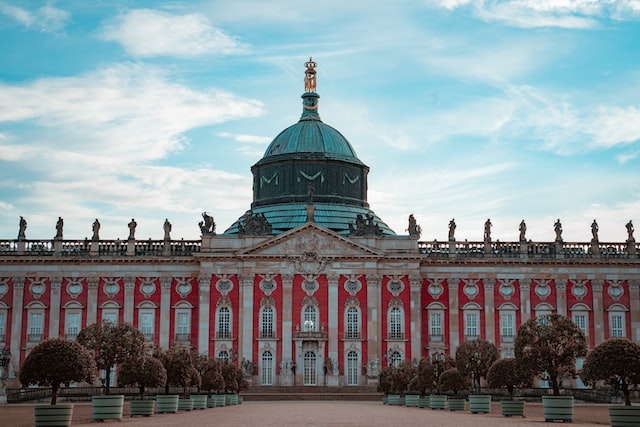Aristocracy is a system where the ruling class is made up of people who have inherited their position. This might be due to their family’s wealth or social status. Oligarchy, on the other hand, is a system where the ruling class is made up of people who have gained their position through their own wealth or power.
What is aristocracy?
Aristocracy is a system of government in which power is held by a small, privileged group. This group may be made up of hereditary nobility, as in a monarchy, or it may be composed of wealthy people who have gained their positions through merit or luck.
In an aristocracy, the ruling class typically has more wealth and education than the rest of the population, and they use their power to further their own interests. This can lead to corruption and oppression, as the aristocrats use their positions of authority to exploit the less fortunate.
Aristocracies are often seen as being unfair and unjust, as the privileged few have all the power while the majority of people are left out of decision-making. This can cause resentment and conflict, as those who are not part of the aristocracy may rebel against it.
What is an oligarchy?
An oligarchy is a government ruled by a small group of people who are often wealthy business owners or members of the military. Unlike an aristocracy, oligarchs typically gain their power through wealth or force, rather than birth or merit.
Examples of aristocracy and oligarchy
A classic example of an aristocracy is feudalism, which was a system of government in medieval Europe. Under feudalism, the nobility held all the power and land, while the majority of people were serfs or peasants who had little or no rights. Another example of an aristocracy is the caste system in India, where people are born into a specific social class and cannot move up or down in society no matter what they do.
Oligarchy can be seen in many different forms throughout history. One example is ancient Athens, which was ruled by a small group of wealthy landowners. Another example is the Soviet Union under Stalin, where a tiny group of Communist Party officials held all the power while ordinary citizens had very little say in how their country was run.
How do oligarchy and aristocracy compare?
Aristocracy has been around for centuries, and was the most common form of government in Europe during the Middle Ages. In an aristocracy, power is passed down through family lines, and only those of noble blood can hold positions of authority. Oligarchy, on the other hand, is a relatively newer form of government that rose to prominence in the Industrial Revolution. In an oligarchy, the wealthy elite class holds all the power. They use their money and influence to maintain control over the government and its policies.
Is aristocracy better than oligarchy?
In general, aristocracy is considered better than oligarchy because it provides a better balance of power between the different classes in society. With an aristocracy, there is a higher likelihood that the best and brightest people will be able to rise to the top, regardless of their social class. This provides a more merit-based society that can be more effective and efficient overall.
Oligarchy, on the other hand, tends to lead to a society that is more stratified and less mobile. The wealthy have a much easier time holding onto their power and resources, while the poor have little chance of ever improving their lot in life. This can create resentment and division within a society, which can ultimately lead to conflict.
What is the difference between aristocracy and oligarchy and timocracy?
Aristocracy is a form of government in which power is vested in a small group of people, typically the nobility or upper class.
Oligarchy is a form of government in which power is vested in a small group of people, typically the wealthy or powerful.
Timocracy is a form of government in which power is vested in the hands of those who love honor and are willing to fight for it.
What countries are run by an aristocracy?
There are many countries that can be classified as aristocracy, such as Monaco, Liechtenstein, and Andorra. In these countries, the aristocrats hold most of the power and make all of the decisions. The common people have very little say in what goes on. They are often treated like second-class citizens and are not allowed to participate in the political process.
What countries are run by oligarchies?
There are many oligarchies around the world, but some notable examples include Russia, China, and Saudi Arabia. In an oligarchy, the ruling class typically has a great deal of control over the economy and politics of the country. This often leads to corruption and inequality.
Is a king an oligarchy?
So, Is a king an oligarchy? It depends on how you define oligarchy. If you consider oligarchy to simply be a form of government in which power lies with a small group of people, then yes, a king could be considered an oligarch. However, if you consider oligarchy to be a form of government in which power rests specifically with those who are wealthy or have high social status, then it is more likely that a king would not be considered an oligarch.
What are the 4 types government?
There are four types of government: Monarchy, Aristocracy, Oligarchy, and Democracy.
A monarchy is a form of government in which a single person, the monarch, has absolute power. The monarch may be either a hereditary ruler or an elected leader.
An aristocracy is a form of government in which power is held by a small group of people, typically the wealthy or the nobility.
An oligarchy is a form of government in which power is held by a small group of people, typically the wealthy or the elite.
A democracy is a form of government in which all citizens have equal rights and can participate in the decisions that affect them.
Is UK an aristocracy or monarchy?
In the United Kingdom, there is a constitutional monarchy which means that the monarch does not rule the country. The UK is instead governed by Parliament. While the monarch does have some power, it is limited by law and tradition. The aristocracy in the UK refers to the noble class. This includes people who have titles such as duke, earl, or baron. The oligarchy is a small group of people who have a lot of power. They are usually wealthy and influential people.
How is oligarchy used today?
(Image by Daniel from Pixabay )

Oligarchies can be found in both democracies and autocracies. In some cases, the oligarchy may be the ruling class (as in an aristocracy), while in others they may simply wield a great deal of influence and power.
There are a number of different ways that oligarchs can maintain their power. They may use their wealth to buy political influence, or they may use their control over key industries to manipulate the economy in their favor. Additionally, oligarchs often have close relationships with government officials, which gives them even more power and influence.
While oligarchies can take many different forms, they all share one key characteristic: a small group of people have disproportionate power and influence over the rest of society.
Why are rich Russians called oligarchs?
In Russia, the term “oligarch” refers to a small group of wealthy individuals who control a large portion of the country’s economy and hold significant political power. Many oligarchs made their fortunes during the privatization of state-owned assets in the 1990s, and they have been accused of using their economic clout to influence government policy.
While there is no formal definition of an oligarch, the term is typically used to describe businessmen or politicians who are considered to be part of the Russian elite. The oligarchs are often criticized for their opulent lifestyles and their perceived role in contributing to socio-economic inequality in Russia.
Featured Image By – Photo by Leon Seibert on Unsplash








